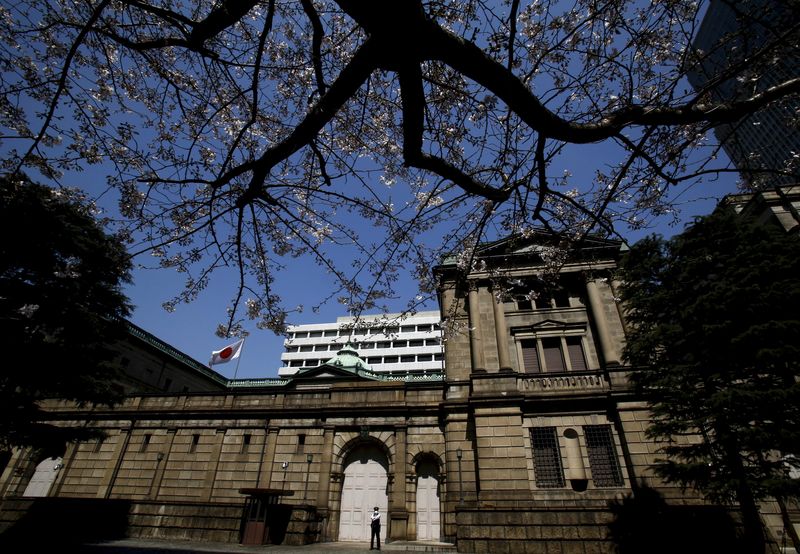By Leika Kihara
TOKYO (Reuters) - Japan's central bank is likely to cut its price forecasts on Thursday and debate whether a strong yen, weak global demand and soft consumption have hurt inflation expectations enough to warrant another blow of stimulus.
The policy decision will be a close call. While many in the Bank of Japan are worried about the gloomy economic prospects, they are equally wary of using their diminishing policy tools having just introduced the negative rate policy in January.
Any monetary easing would likely focus on boosting purchases of stock trust funds, though BOJ officials have said they can combine other steps like more government bond buying or even another cut in interest rates.
"The economy will remain weak and even if the government compiles a stimulus package in May, actual implementation will be some time away," said Mari Iwashita, chief market economist at SMBC Friend Securities.
"If so, the BOJ should act early rather than being behind the curve," she said.
BOJ Governor Haruhiko Kuroda has defended the central bank's past policy decisions, blaming falling oil costs for keeping price growth flat and stressing that a steady economic recovery will accelerate inflation toward its 2 percent target.
But the gloomy global outlook has hurt household and corporate inflation expectations. This month's deadly earthquake in southern Japan has disrupted supply chains, casting doubt on the BOJ's view that growth will pick up in the current quarter.
With yen gains weighing on exports and prices of imported goods, the BOJ is set to cut its growth and price forecasts for the current and next fiscal years at a quarterly review on Thursday, sources have told Reuters.
NOT SO SOON?
More importantly, weak consumption has prompted firms like Fast Retailing Co Ltd (T:9983) to cut prices of its clothing brand Uniqlo, suggesting that companies are reverting to the kind of deflationary mindset the BOJ is trying to eradicate.
The BOJ could ease again if such risks exceed levels it attempted to forestall with January's stimulus, say officials familiar with the bank's thinking.
"What's important is how various headwinds affect companies' price-setting behavior," one of the officials said.
Despite such headwinds to growth, the BOJ is wavering on whether to act now and analysts' bets are divided.
Deploying more stimulus now may draw global criticism that Japan is waging a currency devaluation war, something premier Shinzo Abe may not want ahead of a G7 summit he chairs in May.
Any attempts to push down already low yields may anger financial institutions still struggling to adjust to January's negative rate decision. Cutting the rate on excess reserves from the current minus 0.1 percent or providing funds to banks at a negative rate may thus prove difficult, some analysts say.
Easing now could also create an impression that the BOJ is responding to market pressure for action, and that Kuroda is reverting to the incremental approach for which he criticized his predecessor, they say.

"Kuroda's style has been to deliver a big-blow stimulus, then stop and observe. I don't think this has changed," said another official familiar with the BOJ's thinking.